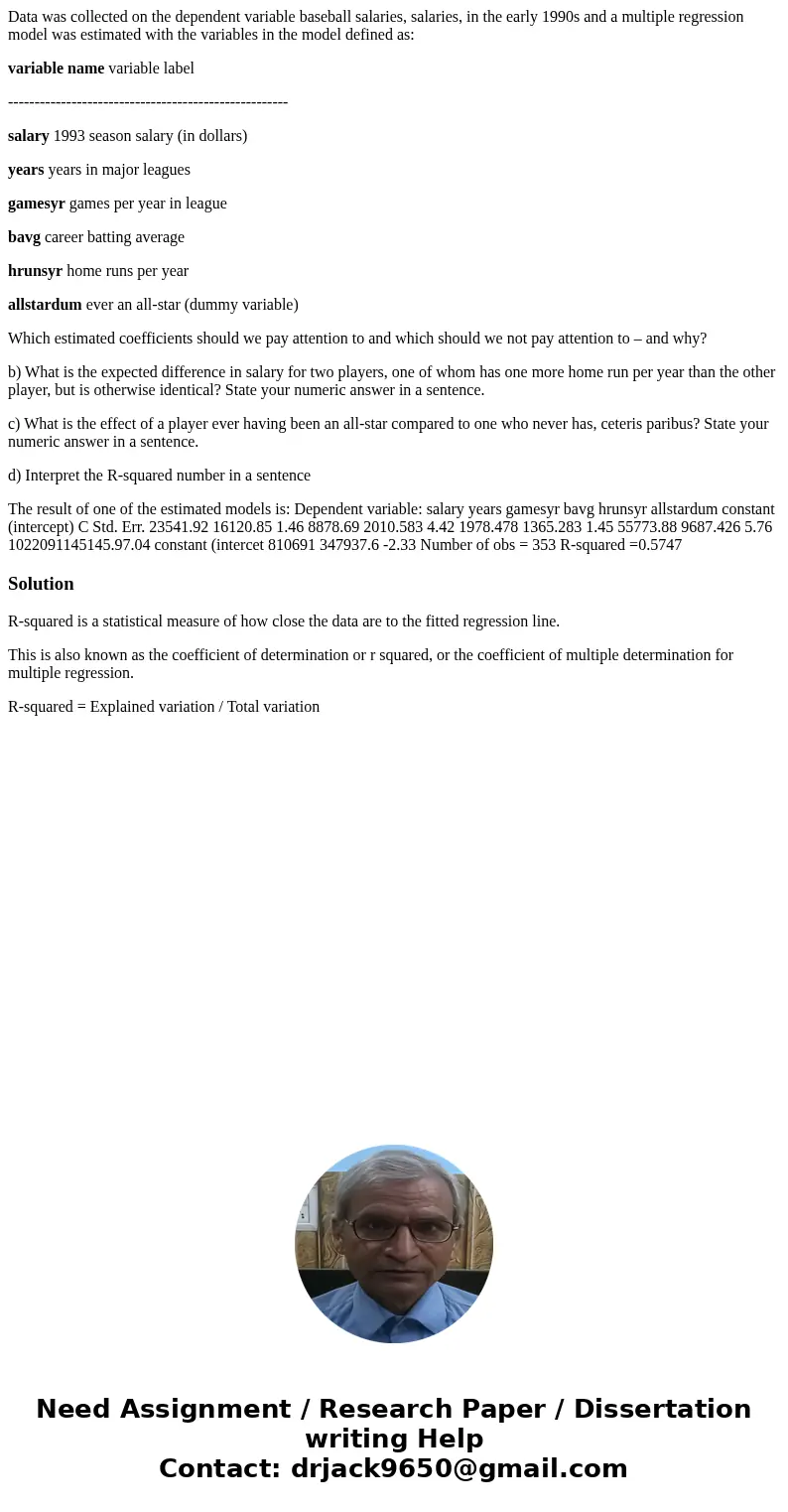Data was collected on the dependent variable baseball salari
Data was collected on the dependent variable baseball salaries, salaries, in the early 1990s and a multiple regression model was estimated with the variables in the model defined as:
variable name variable label
-----------------------------------------------------
salary 1993 season salary (in dollars)
years years in major leagues
gamesyr games per year in league
bavg career batting average
hrunsyr home runs per year
allstardum ever an all-star (dummy variable)
Which estimated coefficients should we pay attention to and which should we not pay attention to – and why?
b) What is the expected difference in salary for two players, one of whom has one more home run per year than the other player, but is otherwise identical? State your numeric answer in a sentence.
c) What is the effect of a player ever having been an all-star compared to one who never has, ceteris paribus? State your numeric answer in a sentence.
d) Interpret the R-squared number in a sentence
The result of one of the estimated models is: Dependent variable: salary years gamesyr bavg hrunsyr allstardum constant (intercept) C Std. Err. 23541.92 16120.85 1.46 8878.69 2010.583 4.42 1978.478 1365.283 1.45 55773.88 9687.426 5.76 1022091145145.97.04 constant (intercet 810691 347937.6 -2.33 Number of obs = 353 R-squared =0.5747Solution
R-squared is a statistical measure of how close the data are to the fitted regression line.
This is also known as the coefficient of determination or r squared, or the coefficient of multiple determination for multiple regression.
R-squared = Explained variation / Total variation

 Homework Sourse
Homework Sourse